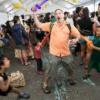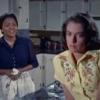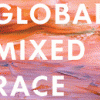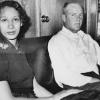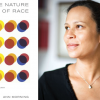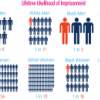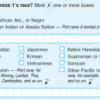"By the time I was at Columbia, the FBI had become interested in my activities. When I finally got my FBI file, one of the entries was something to the effect of “He is known to make frequent trips to Harlem to associate with Negro people.” This was considered something worth noting in my FBI file."
Themes: Laws & Mores
Natalie Chassler
"My grandmother had 7 children. And all the children were very close, there were no fights or anything. As a little girl some of the happiest moments were going to my grandmother -- we used to go every Sunday and have chocolate cake...We left Linden Boulevard because the depression was on and we couldn't afford the rent. I think the rent was $90 a month or something."
Yasmin Dwedar
"When you have to wake up every single day and hear about how your people are violent extremists, terrorists, and people just saying all these racist Islamophobic things, even the tiniest thing can get you emotional because you have to hear it every single day."
Neela Wickremesinghe
“I like being able to identify as a New Yorker, because I feel like it covers more bases than saying “Well, you know, I’m Sri Lankan, but I’m Italian, but I’m Italian-American, and my grandmother’s Dutch, and colonialization has a lot to do with that,” but a New Yorker, I feel like it’s easier.
Svetlana Kitto
"So on one hand like I grew up being told that the Russians saved my grandfather’s life, because they did, but on the other hand like he’s Latvian, so -- my grandparents just had this very sort of mixed thing. Because on one hand they were Jewish, but on the other hand they were Latvian, and so they had Jewish allegiances and then they also grew up in Latvia and loved their country."
Shameeka Mattis
"It just felt like every time I came to Brooklyn… it was always 100 new white people on the train, 50 new white people, and I’m like “This is different.” Because racially Brooklyn was the black borough in so many different parts… So feeling that difference, at first I was just in shock and then I was angry because I knew that that meant that the property values were going to go up and… that the faces that would represent mine wouldn’t necessarily be there.”
Sebastien Fargeat and Vanessa Snowden
"When I got into Princeton, suddenly everyone who thought it was cool that I was from Venezuela attributed the fact that I got in there to the fact that I was Hispanic. And so that became really difficult for me, because I thought I had earned it, and suddenly, all these kind of weird feelings start coming up around my heritage, because I only got where I was getting to because of this, according to my peers.
Whitley Watson
"It gets really, really frustrating, because people do think people from the south are all just like redneck crazy racists, and they think that you come up here and are in this paradise of stuff, and it’s like no, people are still -- there’s a lot of problems up here."
Joseph Figueroa
"I like to lead by example. Sometimes I don't like to lecture people. Even though I want to, but a lot of times I just lead by example, like you do what you do, I do what I do, just live life."
Fiona Gardner and Uche Nduka
"People look at us as if we dropped in from the clouds, even at this phase of human history. I didn’t know that we can still have that kind of reaction, even within New York. It’s not like people voice it out in terms of antagonistic confrontation, but they can still see it in the eyes. The surprise -- “Oh, how do they manage?” You know: “how did that happen?” And all that."


